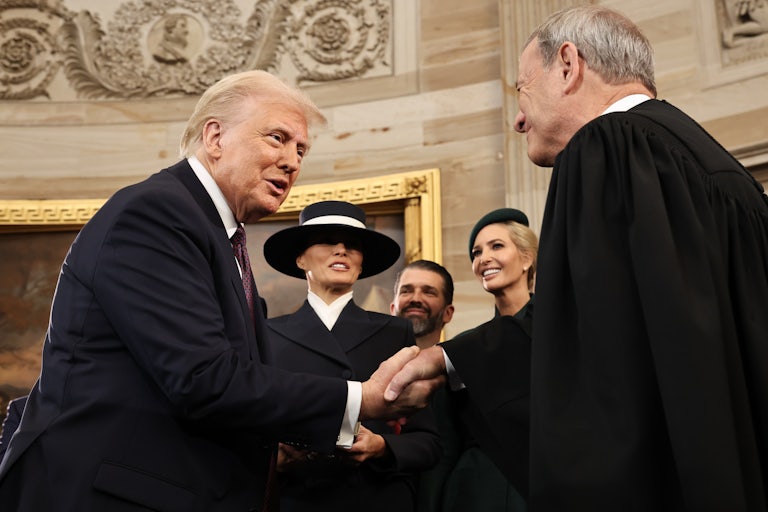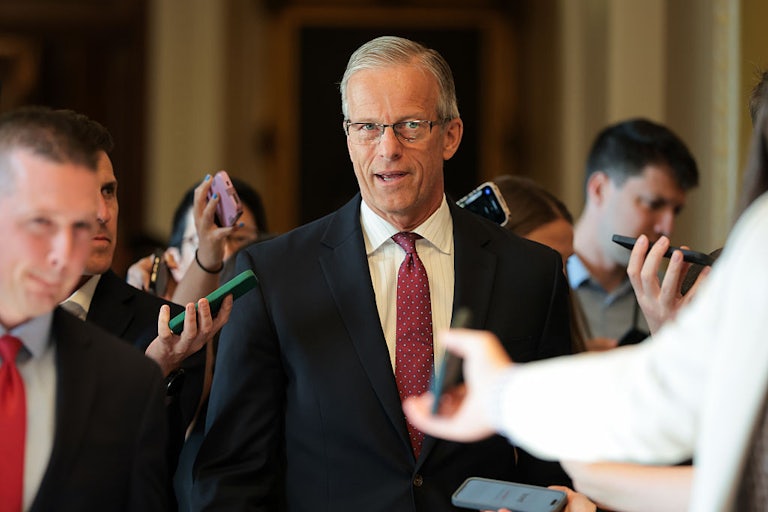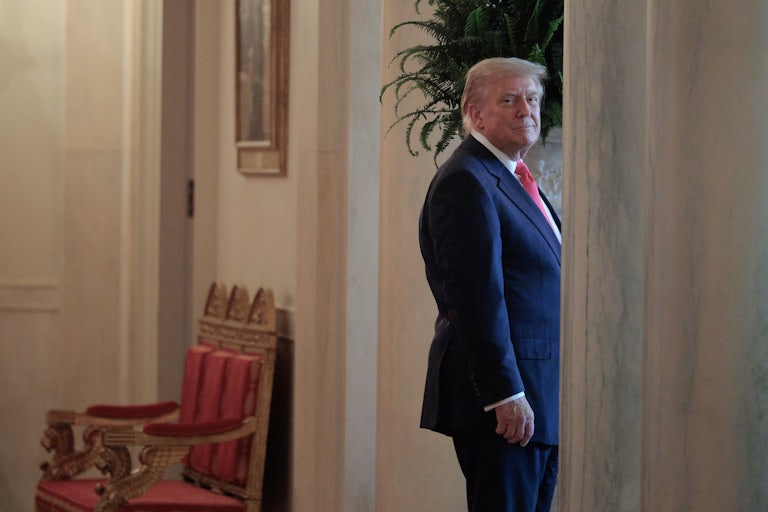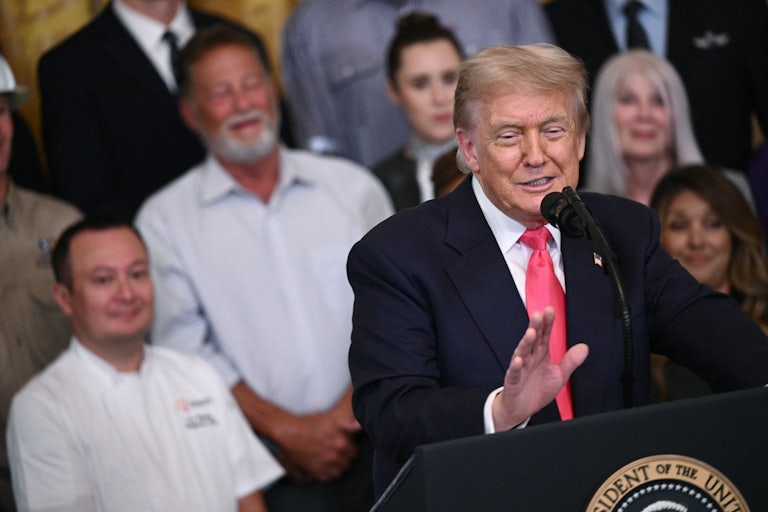Supreme Court Rules Homophobic Books Bans in Schools Are OK
The Supreme Court determined parents can “opt out” of letting their children see LGBTQ books in the classroom.

Cue the book bans.
The Supreme Court sided Friday with a group of Maryland parents in Mahmoud v. Taylor, ruling 6–3 to allow them to pull their children from instruction that involves LGBTQ+ themes.
In 2022, the Montgomery County school board approved the use of LGBTQ+ themed storybooks for elementary school–age children, including a book in which a kid goes to her uncle’s same-sex wedding and a book where a puppy gets lost in a Pride Parade. At the crux of Friday’s case was a decision made the following year by the Montgomery County school board preventing parents from opting their kids out of the coursework.
The plaintiffs, who included a Muslim couple, two Roman Catholics, and a Ukrainian Orthodox individual, argued that the curriculum was violating their religious freedoms under the First Amendment and had stripped them of their right to teach gender and sexuality to their children under their own belief systems.
The majority of the justices viewed the issue as a relatively straightforward one, questioning if there would be any harm at all if the parents were allowed to keep their children away from the texts.
In a 135-page opinion, Justice Samuel Alito outlined that “the Board’s introduction of the ‘LGBTQ+-inclusive’ storybooks, along with its decision to withhold opt outs, places an unconstitutional burden on the parents’ rights to the free exercise of their religion.”
“We have long recognized,” Alito wrote, “the rights of parents to direct ‘the religious upbringing’ of their children. And we have held that those rights are violated by government policies that substantially interfere with the religious development of children.”
But not everyone was aligned.
“Today’s ruling threatens the very essence of public education,” wrote Justice Sonia Sotomayor in a dissenting opinion, chastizing the court’s decision to constitutionalize a parent’s veto power over decisions historically left to local administrators. “The reverberations of the Court’s error will be felt, I fear, for generations.”
The decision comes at an especially volatile time for the LGBTQ+ community, as conservatives place a target on transgender athletes and fearmonger over bathroom access, all while book bans surge around the country. The ruling and chipping away of LGBTQ+ freedoms also come on the heels of another Supreme Court decision.
Last week, the nation’s highest judiciary ruled along ideological lines in U.S. v. Skrmetti that states may ban minors from receiving gender-affirming care, such as hormone treatments and puberty blockers—ironically, denying parents the right to choose that Alito vaunted in Friday’s decision.








